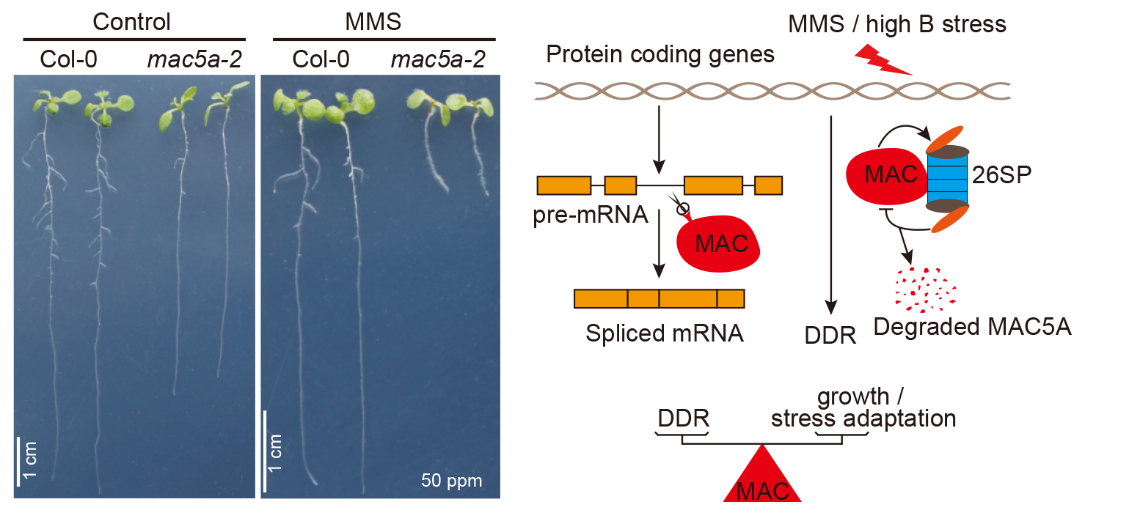MAC Protein Complex Is Essential for Plants to Protect Themselves from DNA Damage
In animals, DNA damage could lead to cancers. Although plants live for a long time without cancers, their growth is always challenged by many environmental factors, such as radiation, salinity, heavy metals and flooding, which can lead to DNA damage and impair crop production.
How do plants protect themselves from DNA damage? A research team from the Qingdao Institute of Bioenergy and Bioprocess Technology (QIBEBT) of the Chinese Academy of Sciences (CAS) gives an answer to the question. They identified a protein complex named MAC that is required for DNA damage response in plants.
This work was published in Plant Physiology on Nov. 04.
The researchers found that plants without functional MAC showed growth defects and were easily damaged by Methyl methanesulfonate (MMS), a chemical inducing DNA breaks.
They also found that the tolerance of these MAC mutants to high boron was decreased. High boron in soils harms crop yield and food nutrients.
MAC5A protein (a member of MAC complex) level was controlled by 26S proteasome (26SP), a molecular machine required for protein recycling via direct interaction, said MENG Xiangxiang, first author of the study.
"This study uncovered the molecular mechanisms on how plants respond to DNA damage, and provided new clue to improve crop production and food quality," said Prof. LI Shengjun, corresponding author of the study.

MAC and 26SP regulate DNA damage response and growth/ stress adaptation. (Image by MENG Xiangxiang)
(Text by MENG Xiangxiang)
Contact:
CHENG Jing
Qingdao Institute of Bioenergy and Bioprocess Technology, Chinese Academy of Sciences
Tel: 86-532-80662647/80662622
E-mail: chengjing@qibebt.ac.cn